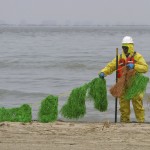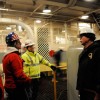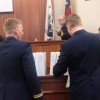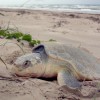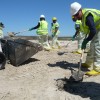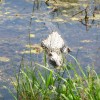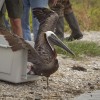Background
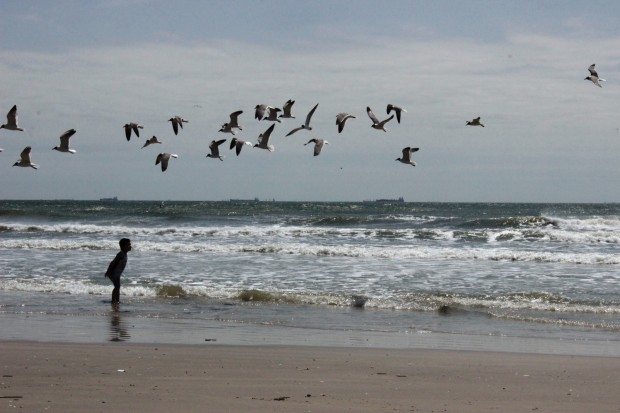
Dave Fehling / StateImpact
Ships dot the horizon off Galveston Beach, waiting to enter the channel near where collision happened March 22
By Alex Dropkin
More than 150,000 gallons of heavy fuel oil spilled into the Houston Ship Channel on March 22, 2014 after a collision between an oil barge and a ship.
The spill released an estimated 168,000 gallons of bunker fuel, a thick bottom-of-the-barrel, cheap fuel oil for powering big ships. Because of both the air pollution created when it’s used and the threat of spills, there have been calls in recent years to ban bunker fuel.
Within days of the spill, the spread of the bunker fuel was apparent. Oil was detected 12 miles offshore into the Gulf of Mexico on Sunday, March 23, and globs of tar and oil were seen along Texas City shores and beaches in the area.
Cleanup efforts are still in effect as of early April, organized by the U.S. Coast Guard and the Texas Parks and Wildlife Department, and officials say they are at least several weeks away from fully containing the fuel. Two dozen boats and over 500 people took part in the massive cleanup.
The oil spill forced the closure of the shipping channel, making more than 80 ships wait to enter or leave the bay. Though the channel reopened four days later, the impacts are still uncertain.
One of the most noticeable, and troubling, effects is on shorebirds. The Coast Guard recovered 329 oiled birds from Galveston Bay to North Padre Island, nearly all dead, and has observed at least 500 birds with some traces of oil on Mustang Island. Birds come in contact with the oil as it washes ashore, and ingest the oil by preening. This has a number of fatal consequences.
Galveston Bay’s fishing industry could be hurt by the spill, too. Spawning fish in the area where the spill occurred left embryos vulnerable. A recent study found that some fish embryos developed deformities because of the 2010 BP Oil Spill, and concerns are that this spill will have similar effects.
